This is part of my unconventional interview series, designed to demonstrate the wildly varied ways we can live, work, and chase our dreams. Please keep in mind that, since these are interviews, the opinions, methods, and websites contained within do not necessarily reflect my own views or experiences. (Which is, in my opinion, part of what makes them wonderful.)
Tell us about you, your background in financial planning, your travel lifestyle, and your work now.
Hi there! I’m Nora, also known as The Professional Hobo. I earned this moniker after selling everything I owned in Canada in 2006 (including a busy financial planning practice) to embrace my dreams of traveling the world full-time.
Once I started traveling, I put my lifelong penchant for the written word, plus my financial expertise, to practice and started writing about travel (because that’s what I do), personal finance (because you need money to travel), and lifestyle design (for crazy people like me who want to travel the world long-term or full-time).
(For more information on how I made this giant leap into a different lifestyle, check out How I Became The Professional Hobo.)

What are some of the biggest challenges of budgeting for travel, particularly long-term travel?
Budgeting for long-term travel is a tricky issue, since travel means something different to each person and your cost of travel is dependent on where you go, what you like to do, the places you like to stay, and more. Since your expenses are likely to be as different to mine as to the traveler next to you, the best way to create your travel budget is to start by tracking your expenses. You’ll find out pretty quickly where and how you’re spending your money and if you need to tighten your belt or can afford to splurge a bit more. If you’d like to dive deeper, here’s a more in-depth guide I wrote on the topic.
What advice would you give for saving for travel?
Although your personal travel budget will vary, a few general tricks I can recommend for saving for travel include:
- Get rid of your debts before you go or ensure you have savings or a stream of income that can cover the payments while you’re abroad.
- Cut expenses wherever you can and save the extra money into a secure high-interest savings account.
- Don’t forget about an emergency fund–you want to have at least enough money to get home from anywhere in the world in a pinch. Don’t let the well run dry and strand yourself on a beach somewhere (as appealing as that may sound, in reality it ain’t all that).
What advice would you give about saving money while traveling?
For the first two years of my full-time travels, I had a small income from the sale of my business. This was a wonderful way to pad my travels, but it wasn’t a lot of money and I had to quickly learn how to make it last on the road. Thus, I learned some golden rules to saving money (or rather, spending less) on the road, which include:
- Travel slowly. The faster you travel, the more money you spend. The more locally you live, the more you’ll save.
- Don’t pay for accommodation. No really! Don’t. In my first five years of full-time travel, I saved over $63,500 in accommodation expenses; in 2011, I spent $173 on accommodation–for the entire year. There are a variety of ways you can get free accommodation, from house-sitting to home exchanges, living on boats, and more. (I actually wrote a book on the topic: How to Get Free Accommodation Around the World.)
- When you do fly, do it for half the price and in business class. Even budget travelers deserve some luxury and, as a general rule, my long-haul flights are in business class for less than the price of equivalent economy tickets. I do this with frequent flyer miles and mystery shopping. (Here are my secrets.)
What advice would you give to those thinking about starting a location independent business and working from the road?
My first and foremost piece of advice would be to get the foundations of your location independent business up and going before starting to travel. I spent my first two years of full-time travel simultaneously learning the ropes of travel (which was pretty much a job unto itself) and working almost full-time hours on my writing and blogging business (for almost no pay). All in all, it was a little much and, if I had it to do over again, I’d have figured out at least some of the business stuff before I started to travel.
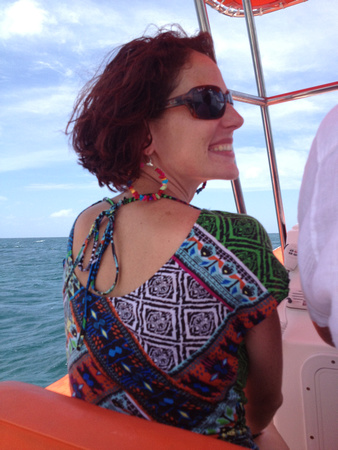
What banks or credit cards would you recommend for long-term travelers?
This all depends on where you’re from. Americans are blessed with Chase Bank, which has some banking and credit products with no foreign transaction and exchange fees. Canadians have access to some Chase credit cards with no foreign currency fees, but personally, I suck up the fees and prefer to use frequent flyer mile credit cards so I can continue to fly in style for thousands of dollars less.
For banking, no matter which bank you choose, most have account options that give you unlimited foreign withdrawals/transactions, so you don’t have to pay a fee every time you visit an ATM. Many of these unlimited account options involve a monthly fee. However, if you maintain a certain balance in your account you can get those fees waived.
How does a full-time traveler handle taxes?
After being on the road for almost two years, I got some threatening letters from the tax department demanding I file my taxes–and that they weren’t interested in waiting until I returned to Canada for a visit in six months. Luckily I had an established relationship with an accountant already and we could take care of business from abroad. That’s one of the primary ingredients to filing taxes from abroad. The rest of the details can get lengthy, so here’s a detailed piece I wrote on the topic: How to File Taxes From Abroad.
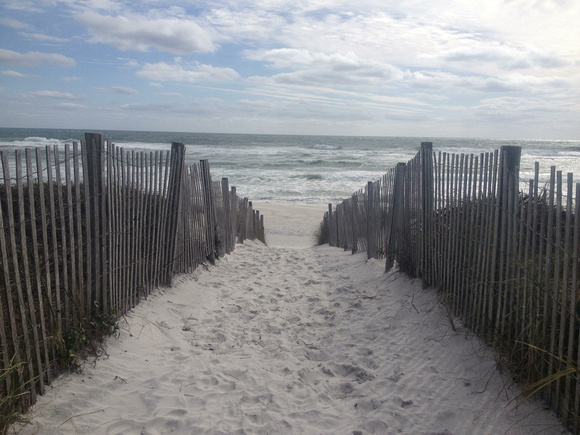
How do you recommend creating a strong plan for retirement without a traditional employer 401k?
Anybody who is self-employed faces this situation, whether or not they’re traveling. It’s prudent to invest some money early in life–to have for those years later in life when you might not be willing or able to work. As long as you’re planning for retirement, you may also want to look at issues like insurance and estate planning.
I was lucky, myself, in that I saved quite a bit of retirement money early in life before I started traveling; it’s now invested and compounding for that eventual day when I stop working.
Not everybody is in as advantageous a situation as this…but, then again, what does retirement really mean? The very definition of the thing is changing.
What do expats need to think about if they’re planning to retire overseas?
I just finished reading an excellent book about living/retiring as an expat in various countries around the world. If you’re thinking of going this route, I highly recommend the book A Better Life for Half the Price by Tim Leffel, about how to live overseas (and live well) for $2,000/month or less.
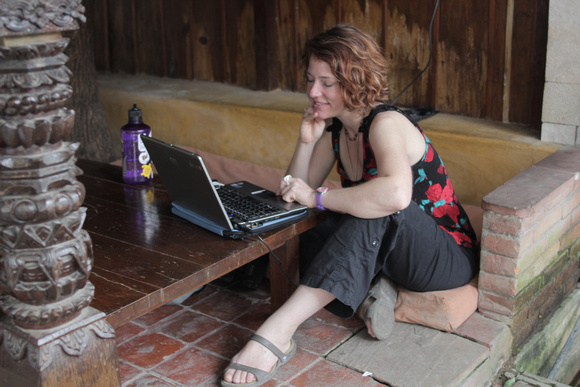
You track and share your travel expenses and income every year, correct? Can you tell us where to find those posts?
I certainly do! You can find a running log of all kinds of posts such as my cost of full-time travel and my income amounts and sources on my Travel Resources page.
What’s next for you and where can people learn more about you and your work?
I’ve currently established a home base in the Sacred Valley of Peru (for as long as it feels good to be here), where I get the best of both worlds: I have all the comforts of home in a beautiful mountain setting, surrounded by good friends, and, yet, every time I step outside my front door, I’m reminded that I live in a totally different part of the world, with a different language and cultural practices that make me feel like a traveler. I’m also taking multiple trips each year to explore new destinations using Peru as my home base, so again, I get the best of both worlds.
Business wise, I’m releasing my next book shortly which will be (a sleeper hit?) about working on the road (you can pick up copies of my first two books here: How to Get Free Accommodation Around the World and, for armchair travelers, Tales of Trains: Where the Journey is the Destination.
You can visit my online world at theprofessionalhobo.com and I’m also a regular columnist for publications like Credit Walk and Wise Bread.
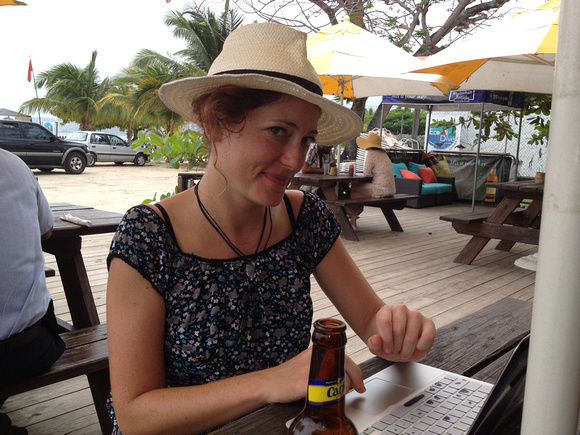
Did this post help you? Share the love by:
:: Buying a copy of my Italy, France, Switzerland, Paris, Barcelona, or Prague guides (already have one? Gift another to a friend!)
:: Clicking here before you make your next Amazon order (it doesn’t matter what you order, if you start by clicking from my site, I’ll get a commission!)
:: Donating to keep this site going.
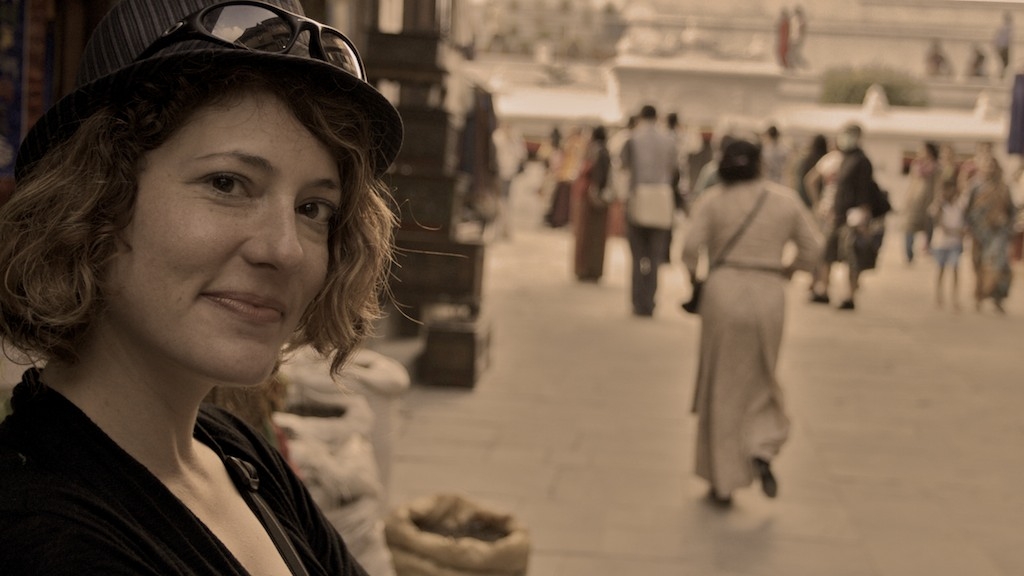
2 comments
[…] last week’s financial expert interview, I thought it would be nice to pull together all my old European budget posts for […]
[…] Yes, there are full-time travelers who travel in a financially sustainable way. […]